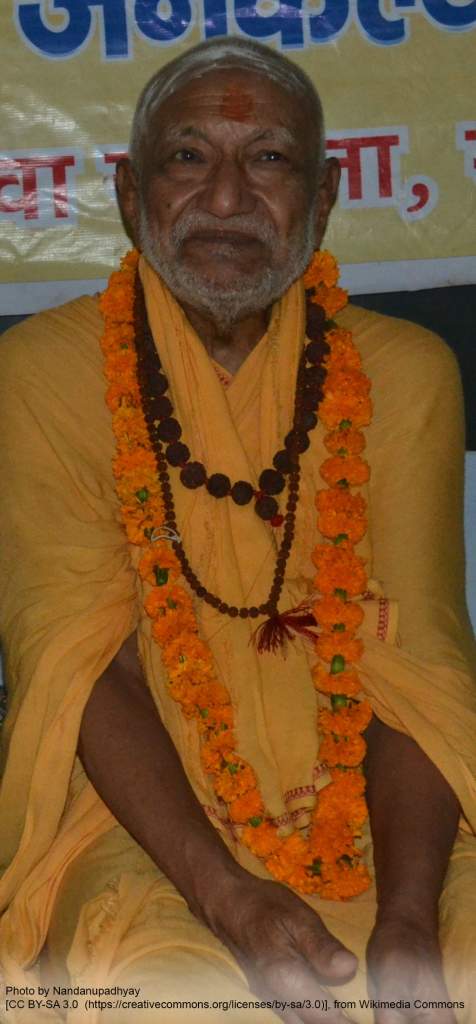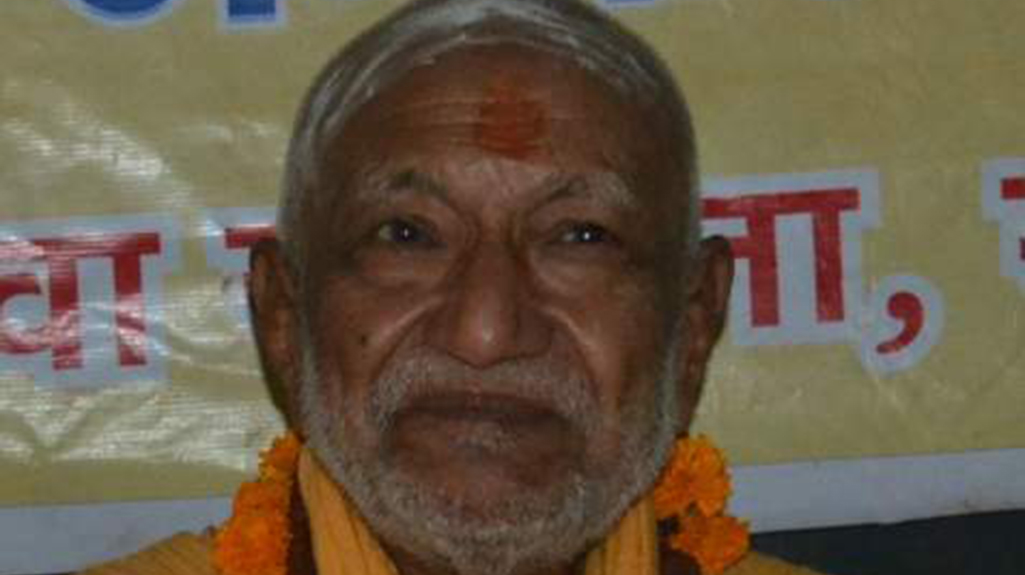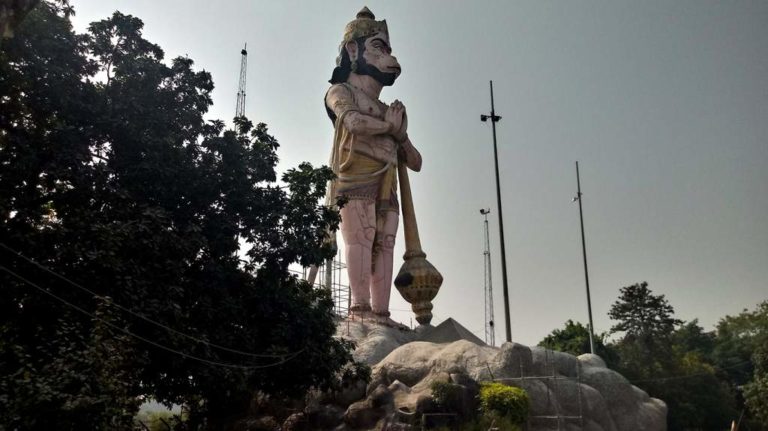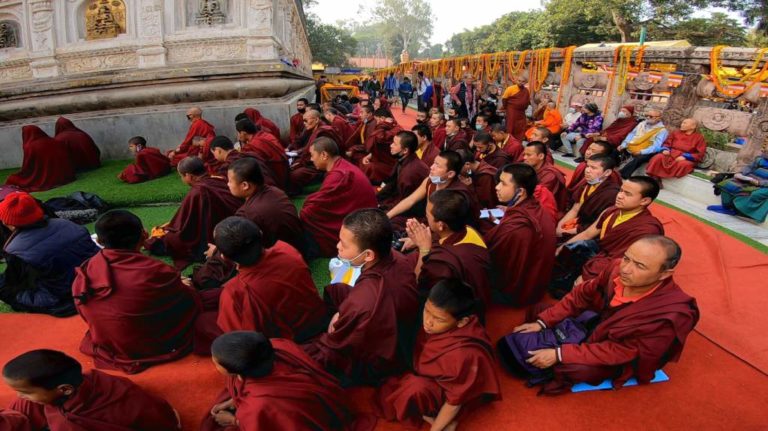Death for the Ganges
Slow Boat Down the Ganges Update 33
 There has been an unfortunate death for the Ganges. Not ON the Ganges, but FOR the Ganges. Activist GD Agarwal died Oct 11, 2018, after fasting for 111 days. He was protesting for a pollution free Ganges. Also known as Swami Gyanswaroop Sanand, he had been a professor at the Indian Institute of Technology (IIT) in Kanpur and served on the Central Pollution Control Board. He was protesting against hydroelectric projects on the Ganga’s tributaries and had demanded a law to protect the river.
There has been an unfortunate death for the Ganges. Not ON the Ganges, but FOR the Ganges. Activist GD Agarwal died Oct 11, 2018, after fasting for 111 days. He was protesting for a pollution free Ganges. Also known as Swami Gyanswaroop Sanand, he had been a professor at the Indian Institute of Technology (IIT) in Kanpur and served on the Central Pollution Control Board. He was protesting against hydroelectric projects on the Ganga’s tributaries and had demanded a law to protect the river.
India is a land of protests and fasts are a well-known and often-used method to bring the authorities to listen to the demands. However, often such fasts are for publicity purposes, and the people who are supposed to be on a fast, do so on a relay basis. Meaning, there is always someone or the other publicly on fast, while the one who has been replaced on the dais goes on to eat and drink behind the scenes. Other people fast between the time between meals.
GD Agarwal was not one of those people. Throughout his fast, he consumed only water mixed with honey, in the last two days before he died, he stopped taking that too.
Even though most people and the media refer to the protest as a fast for a pollution-free Ganges, but the main issue he was protesting is about the uninterrupted flow of the river. Something that is the first part of the Government’s proposal towards Ganga Rejuvenation ... Aviral Dhara, or uninterrupted flow. The second part of the slogan is Nirmal Dhara, or Clean Flow.
This fast was the not the first one he had undertaken in protest. He started a fast on June 13, 2009 at Uttarkashi, demanding flow of the Ganges in its original channel in a 125 km stretch from its origin, the only stretch left where the Ganges can still be seen undisturbed by man. He then said, “The water (of the Ganges) is not ordinary water to a Hindu. It is a matter of the life and death of Hindu faith”.
He requested the Government to stop the construction of hydroelectric projects in this stretch of river, especially the Loharinag Pala Hydro Power Project, so that the ecology of the river and its self purifying properties.
He suspended his fast after the Government gave written agreement to arrive at a mutually acceptable solution in three months. After six and a half months there was no solution shown by the Central Government, and Agrawal resumed his fast on Jan 14, 2009. Work on the Loharinag Pala Hydro Power Project was stopped when he came close to dying on the 38th day of his fast. In a letter dated Feb 19, 2009 the Ministry of Power stated that it had ordered immediate suspension of work on the Loharinag-Pala Hydropower Project on the Bhagirathi River. In response Agrawal ended his fast the next morning at 11:00 am.
In mid-June 2013, he again started fasting in the wake of inactivity of National Ganga River Basin Authority. He stopped taking water on Sep 21 as his fast entered 101st day.
His latest fast that started Jun 22, 2018, finally resulted in him sacrificing his life, fighting and protesting for a cause that was not only close to him, but close to every person who considers the Ganges holy. In fact, even if not a person who views the river in devotional terms, the fight for the uninterrupted flow of the Ganges will help every person who lives on her basin and benefits from her largesse.
Prof Agarwal is not the first person to have fasted unto death for this cause. In early 2011, Swami Nigamananda Saraswati fasted unto death protesting illegal mining in Haridwar that was resulting in pollution.
I am too insignificant a person compared to people like Dr GD Agarwal, but I sincerely believe that the Government’s promise of Aviral Dhara (uninterrupted flow) is a non starter. It cannot flow uninterrupted if the course is dammed and barraged. Built in 1854 by the British, the Haridwar dam has led to the decay of the Ganges by greatly diminishing the flow of the river. The Farakka Barrage, built to divert fresh water into the Bhagirathi, has resulted in an increase of salinity in the Ganges. The Government of India planned about 300 dams on the Ganges in the near future, despite a Government-commissioned green panel report that has recommended scrapping 34 of the dams citing environmental concerns.
The struggle between faith, the flow of the river, the need for water for irrigation, and the requirement of hydroelectricity to generate electricity, will be a tough one, and chances are that some kind of compromise will be arrived at. Needless to say, any such compromise will mean that the goal of Aviral Dhara will not be met.
Sure, Nirmal Dhara is something that has immense chances of success. Some things need to be done and many things are being done. Stopping plastic pollution, treating sewage and chemical effluents, controlling idol and flower immersion, strictly implementing laws and penalising polluting industries, will go a long way in cleaning the river. As I have mentioned before, I have seen a lot of work being done by the Government in association with local citizens and grassroots organisations. The river has not become dirty overnight, and it will not get clean overnight. A movement has started, and it needs to continue for a few years, till we see a visible reversal as far as pollution is concerned. It needs to be actual and not just superficial. This takes time, and each of us need to be conscious and concerted in this effort.
 A SLOW BOAT DOWN THE GANGES is a humble effort towards this goal of a pollution-free Ganges. This is a Zero Single-use Plastic expedition. It is a human powered expedition. It is a tough expedition, being run on the dual canvas of adventure and activism. Will it make a difference? Maybe it will, maybe it will not. As individuals we can certainly try to make a difference. But when we get together, we can create an impact. One less plastic bag thrown into the water by one person will not make much difference. But, when the 400 million people who live on the Ganges Basin stop throwing one plastic bag a day into the waters of the Ganges, she is bound to get clean in a hurry. Let us together create that impact, by pledging to do our individual bit so that collectively we can create an impact.
A SLOW BOAT DOWN THE GANGES is a humble effort towards this goal of a pollution-free Ganges. This is a Zero Single-use Plastic expedition. It is a human powered expedition. It is a tough expedition, being run on the dual canvas of adventure and activism. Will it make a difference? Maybe it will, maybe it will not. As individuals we can certainly try to make a difference. But when we get together, we can create an impact. One less plastic bag thrown into the water by one person will not make much difference. But, when the 400 million people who live on the Ganges Basin stop throwing one plastic bag a day into the waters of the Ganges, she is bound to get clean in a hurry. Let us together create that impact, by pledging to do our individual bit so that collectively we can create an impact.
I am not a soul as noble as Prof Agarwal, and I do not wish to die for this cause. But I am pushing my physical limits to execute this expedition and hoping that at least some people will be influenced and feel energised to lend their shoulders to the wheel.
We owe it to ourselves to see a clean Ganga. If the river disappears, it will affect all those people who live in its basin.




 (4 votes, average: 5.00 out of 5)
(4 votes, average: 5.00 out of 5)![]()